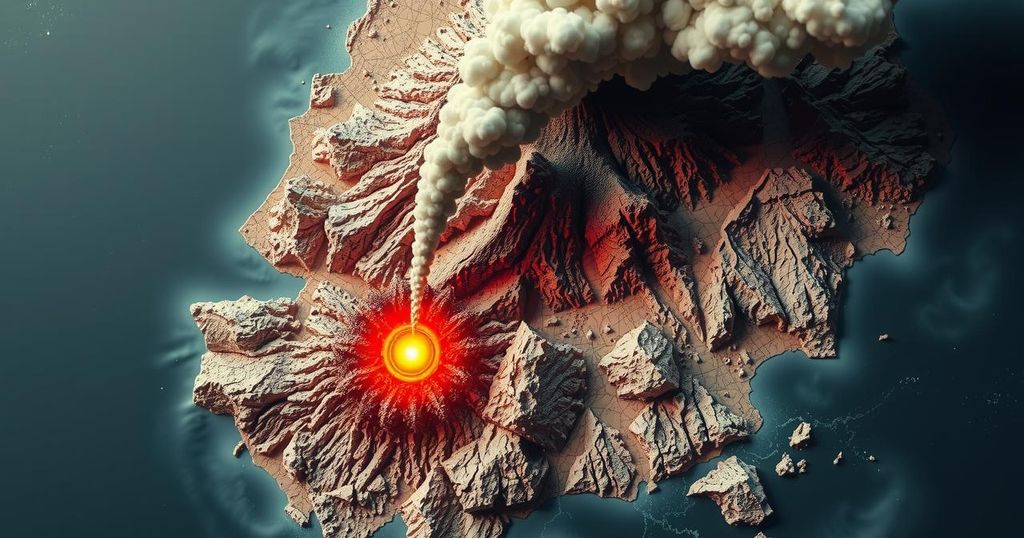A magnitude-5.8 earthquake hit Ethiopia on January 4, 2025, near Addis Ababa, with fears of more significant seismic events. Concurrently, Mount Dofan erupted, leading to evacuations. Experts caution that ongoing volcanic activity could threaten densely populated areas and complicate existing tensions over the Grand Ethiopian Renaissance Dam (GERD) among Ethiopia, Egypt, and Sudan.
On January 4, 2025, a magnitude-5.8 earthquake struck Ethiopia, primarily affecting the surrounding regions of Abomsa and Amhara, near the capital city of Addis Ababa. The earthquake, which occurred at a depth of 10 kilometers, was reported by both the Ethiopian Geological Institute and the United States Geological Survey (USGS). Seismologists anticipate the seismic activity may escalate, with previous tremors escalating from magnitude 5.2 to 5.5, demonstrating an upward trend in intensity. Additionally, Mount Dofan in the Afar region has erupted, prompting authorities to evacuate thousands of residents to temporary shelters due to emerging geological hazards and fissures in the landscape.
Abbas Sheraqi, an Egyptian geologist from Cairo University, noted on his social media that the ongoing seismic and volcanic activities could intensify further, raising concerns about lava flow potentially impacting nearby volcanoes, especially Fentale, which is situated in a densely populated region. Sheraqi expressed apprehension regarding the Renaissance Dam, highlighting its significance beyond Ethiopia, as it also affects water security for both Egypt and Sudan. In light of existing tensions over the Grand Ethiopian Renaissance Dam (GERD), discussions have stalled amid Ethiopia’s unilateral actions, exacerbating concerns for downstream nations regarding water resource management in the Nile basin.
As the situation develops, Egyptian and Sudanese authorities continue to seek assurances regarding the management of the GERD, aiming to ensure their water rights are upheld amidst Ethiopia’s increasing geological and hydrological activities.
The recent earthquake and volcanic eruption in Ethiopia come amidst ongoing tensions regarding the Grand Ethiopian Renaissance Dam (GERD), a major hydroelectric project on the Blue Nile River. The dam has been a source of contention among Ethiopia, Egypt, and Sudan, with the latter two countries concerned about potential impacts on their water supply. The current geological events add complexity to these diplomatic discussions, as increased volcanic activity could threaten water infrastructure critical to all three nations.
In conclusion, the magnitude-5.8 earthquake in Ethiopia and the eruption of Mount Dofan underscore the urgent need for coordinated disaster response and international dialogue regarding geological and hydrological challenges in the region. The enhancement of seismic activities may indicate further unrest, prompting immediate action to protect residents and address the long-standing disputes surrounding the Renaissance Dam. These events highlight the interconnectedness of natural and geopolitical issues in the Horn of Africa.
Original Source: www.egypttoday.com






